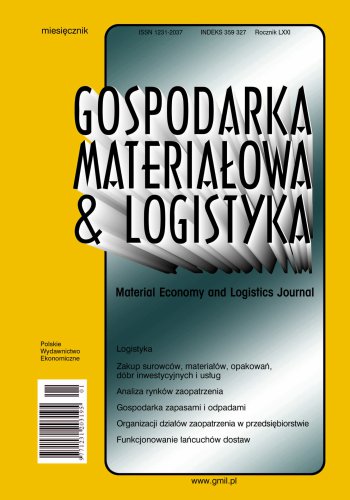The article constitutes the first part of the study, the aim of which is to present the influence of the COVID-19 pandemic on logistics on the example of selected Polish manufacturing, trade and service enterprises. The article is based on the study of literature and own empirical research. The research was conducted in 2022 among 335 randomly selected small, medium and large Polish manufacturing, trade and service enterprises. As a result of the research, it was found that the COVID-19 pandemic had a huge influence on logistics in all surveyed enterprises in 2020–2021. Changes in logistics conditions caused by the pandemic overlapped with the logistics determinants of contemporary enterprises before the pandemic. Strategic and operational management of logistics processes increasingly determined the economic and market results of the best surveyed enterprises during the COVID-19 pandemic. Enterprises achieving the best results during the pandemic implemented the supply chain management strategy that was in a constant state of creation and development, characterized by an immediate response to changing customer requirements, environmental conditions and competitors' activities, respecting, at the same time, the principles of sustainable development. During the pandemic, the most effective logistics managers took quick actions so as to reduce the likelihood of disruption, decrease the severity of the effects of events, and create and maintain competitive advantages of their enterprises.
Keywords: logistics; logistics processes; enterprise; supply chain management; competitive advantage; COVID-19 pandemic

